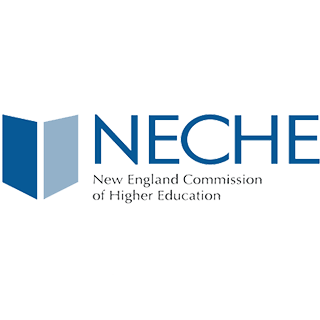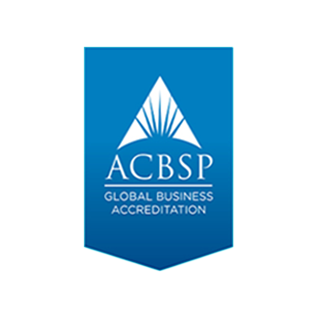For Jazzmen Shipp, Earning a Degree Changed Everything
Business | 2min Read

Designed for corporate accountants, auditors, fraud examiners and financial analysts, Southern New Hampshire University's online Master of Science (MS) in Accounting program can help prepare you for high-level positions in banking, taxation, insurance or any company with a financial division.
Looking to become a Certified Public Accountant (CPA)? Our MS Accounting degree was designed with the CPA in mind, in fact, our 30 credit MS program supports educational eligibility to sit for the exam in most jurisdictions. Regulations vary based on your jurisdiction, prior to enrolling be sure to visit SNHU’s Licensure and Certification Disclosures page for more information about program eligibility in each U.S. state and territory.
Companies of all sizes rely on professionals with financial expertise to influence their decisions and strategies. Aligned with the CPA Exam, the online master's in accounting program at SNHU will help enhance your analytical skills, deepen your knowledge of accounting principles and help you continue your path to career success.
As a student of this program, you'll explore the role of ethics and global awareness in relation to responsible business and accounting practices. You'll develop marketable skills in data analysis, communication, research and strategic thinking, using industry-relevant tools and technologies to gain experience.
Visit the course catalog to view the full MS in Accounting curriculum.
Minimum Specifications:
Additional Information:
The content in SNHU's MS Accounting program was intentionally aligned to the 2024 Uniform Certified Public Accounting (CPA) Examination®. Learners interested in the exam and licensure can pursue our MS Accounting degree to help them achieve educational eligibility, which stands at 150 credits in most jurisdiction.
Licensing requirements to sit for the CPA exam vary from jurisdiction to jurisdiction. Students are encouraged to review their jurisdiction-specific requirements. Jurisdiction educational requirements can be found on the website of the National Association of State Boards of Accountancy (NASBA), while jurisdiction CPA licensing requirements can be found through the Accounting Licensing Library, powered by the NASBA.
For more information on which SNHU programs satisfy educational eligibility by jurisdiction, please visit our licensure and certification disclosure page.
The core curriculum of SNHU's online MS in Accounting was built with the CPA Exam in mind, reflecting its emphasis on the more technologically advanced work tasks of modern accountants.
As part of the current CPA Exam, candidates are required to select 1 of 3 specialized discipline areas in which to demonstrate greater knowledge. To offer additional preparation for these disciplines (and earn a credential while doing so), SNHU has developed corresponding online CPA discipline-aligned certificates you can earn while pursuing an MS in Accounting.
These certificates can be taken by themselves or alongside your MS Accounting degree:
If you choose to complete one of these certificates while enrolled in the master's in accounting program, you could earn two credentials in about the same amount of time it takes to complete a typical master's degree.
Licensing requirements to sit for the CPA Exam vary from jurisdiction to jurisdiction. For more information on program eligibility in your state, visit our licensure and certification disclosure page.
Interested in a customized accounting path? SNHU offers several certificate options for accounting professionals who'd like to specialize their skill set in areas like management accounting and fraud examination.
Even better? You can pursue the certificate of your choice in addition to an MS in Accounting — and earn both for 36 credits or less.
Aligned with content from the Certified Management Accountant (CMA) Exam, this graduate certificate is ideal for those who would like to pursue a role in internal private accounting. You'll learn how to use internal reports and financial statements to inform decisions related to a company's bottom line or business performance.
Learn more about earning a graduate Management Accounting Certificate.
This graduate certificate — aligned with the Certified Fraud Examiner (CFE) Exam — is specifically designed to focus your accounting education on the investigation of financial records to detect fraud. You'll build a strong foundation of traditional accounting knowledge, explore the auditing process in depth and gain key investigative skills to identify, document and prevent fraud and cyber crime.
Learn more about earning a graduate Fraud Examiner Certificate online.
Our no-commitment application can help you decide if SNHU is the right college for you and your career goals. Apply up until 2 days before the term starts!
Upcoming term starts: July 6, 2026 | September 21, 2026
Attending college online at SNHU can be a life-changing experience. In fact, 93.4% of online students would recommend SNHU according to a 2025 survey with 8,718 respondents.
Our faculty members bring years of experience to the online classroom. Leveraging their skills in accounting, they connect theoretical concepts with real-life situations, allowing you to understand how scenarios play out in today's workforce.

Suzette Pounds teaches graduate-level accounting courses at SNHU. She has over 30 years of accounting and teaching experience. She is a Certified Public Accountant (CPA).
Position
Adjunct Accounting Instructor
Joined SNHU
2013
Education
“Accounting gives students the confidence to enter the workforce. Most accounting instructors, including myself, are professionals, having worked in industry. That real-world experience that instructors can share with students helps to prepare them with the theory behind what we do in accounting.”

Before finding a love for online teaching, Mona Stephens spent much of her auditing and accountancy career in local government. She is a Certified Public Accountant and Certified Internal Auditor who loves working with students and sharing her passion for all things accounting. Stephens is also a member of numerous industry organizations, including the Government Finance Officers Association, the American Association of Accountants and the Institute of Management Accountants.
Position
Associate Dean of Business
Joined SNHU
2011
Education

Kristin Regis
Kristin Regis began her teaching career as an English instructor at Edogawa University near Tokyo, Japan. Her passion for teaching and finance prompted her to start teaching finance courses part time at SNHU (both face-to-face and online) before transitioning into a full-time finance faculty lead role. Prior to working full time for SNHU, she held corporate and municipal leadership positions for over 10 years. Regis is a member of the Financial Planning Association.
Position
Senior Associate Dean
Education
You’ll take your courses within SNHU’s Brightspace platform. This is where you’ll find your:

At Southern New Hampshire University, you'll have access to a powerful network of more than 400,000 students, alumni and staff that can help support you long after graduation. Our instructors offer relevant, real-world expertise to help you understand and navigate the field. Plus, with our growing, nationwide alumni network, you'll have the potential to tap into a number of internship and career opportunities.
Recently, SNHU has been nationally recognized for leading the way toward more innovative, affordable and achievable education:
Founded in 1932, Southern New Hampshire University is a private, nonprofit institution with over 250,000 graduates across the country. SNHU is accredited by the regional accreditor New England Commission of Higher Education (NECHE), which advocates for institutional improvement and public assurance of quality.
No application fee. No test scores. And no college essay. Just a simple form with basic information. It’s another way SNHU helps you reach your goals sooner.
It's easy, fast and free.
Whether you're applying for an undergraduate or graduate degree, you’ll fill out a form to verify your previous education experience. As part of our admissions process, we'll help you request transcripts from your previous school(s) to see if you can transfer any credits into your SNHU program! (Also for free!)
Additional Requirements:
After reviewing your official evaluation, you can decide if SNHU is right for you! If you choose to enroll, just pick your start date and get ready for classes to begin.
Talk to an admission counselor: 888.327.SNHU | enroll@snhu.edu
SNHU is accredited by the regional accreditor the New England Commission of Higher Education (NECHE). The university also carries specialized accreditations for some programs.
This program and its concentrations are accredited by the Accreditation Council for Business Schools and Programs (ACBSP). Student achievement data can be found on the ACBSP accreditation page.


As a nonprofit university, SNHU offers some of the lowest online tuition rates in the country. And when you work with our Financial Services team, we'll explore ways to help you save even more on your education – and customize a payment plan that works for you.
*before previously earned credits are applied
Tuition rates are subject to change and are reviewed annually.
**Note: Students receiving this rate are not eligible for additional discounts.
Additional costs: Course materials vary by course.
If 2 of your prior learning credits ($659/credit) are accepted toward your master’s degree.
Your remaining tuition cost: $18,452
If 4 of your prior learning credits ($659/credit) are accepted toward your master’s degree.
Your remaining tuition cost: $17,134
If 6 of your prior learning credits ($659/credit) are accepted toward your master’s degree.
Your remaining tuition cost: $15,816
How we estimate your tuition cost:
We look at the cost per credit multiplied by the number of credits you need to earn for a master's degree. Most master's degrees require 30 credits. SNHU allows you to transfer in up to 6 credits, requiring a minimum of 24 credits to be taken at SNHU. This is only a tuition estimator and doesn't account for other fees that may be associated with your program of choice.
Transfer credits toward your master's degree program at SNHU. If you’ve taken one course or many, we’ll evaluate them for you.
Fill out the FAFSA to see if you’re eligible for grants or work-study. (You could also be offered loans, though you’ll have to pay those back later.)
Earn credits in leadership, technology and more – while taking advantage of an online graduate tuition discount for active-duty service members and spouses.
Getting free money for college – from SNHU or an outside organization – could help you save hundreds or even thousands of dollars.
Bring in credits from popular options like CLEP, Sophia Learning, Google and other common credit for prior learning (CPL) experiences.
Learn how you can save money with tuition reimbursement from your employer.
Take advantage of an online tuition discount through your organization’s partnership with SNHU. Check with your employer to see if your organization partners with us and if you’re eligible for additional tuition savings and partner education benefits.
Our master's in accounting online degree program will put you in a great position to pursue a career in any number of fields.
While technological advancements may automate some routine accounting tasks, that change is not expected to reduce the overall demand for accountants.1 In fact, the automation of routine tasks (like data entry) will make accountants' advisory and analytical duties more prominent.1
Additionally, the U.S. Bureau of Labor Statistics notes that globalization, a growing economy and complex financial regulations are expected to continue driving the strong demand for accounting professionals, making it a very promising area of study.1
The online MS in Accounting is designed to meet the needs of today’s workforce. With advanced knowledge in data analysis, communication, research and strategic thinking, along with experience using industry relevant tools and technologies, you'll be prepared to work in a number of settings, including:
Maintain accounts, track banking activities and perform audits to ensure accounts are accurate — making corrections as needed.
Examine, analyze and interpret accounting records in order to prepare/evaluate tax statements and make recommendations to clients.
Review business documents and financial records of companies to ensure they are paying the proper amount of insurance premiums.
Review the records of government agencies and audit private businesses/individuals whose activities are subject to government regulations or taxation.
Combine accounting and financial information to guide business decision-making and understand how to integrate financial/non-financial data.
Examine financial statements of private businesses and individuals to ensure they are accurate and comply with laws and regulations.
Increase in accountants and auditors positions through 2033, projected by the U.S. Bureau of Labor Statistics (BLS).1
Median annual pay for accountants and auditors as of May 2024, according to the BLS.1 Statistic not based on wage data for SNHU graduates.
Understanding the numbers
When reviewing job growth and salary information, it’s important to remember that actual numbers can vary due to many different factors—like years of experience in the role, industry of employment, geographic location, worker skill and economic conditions. Cited projections are based on Bureau of Labor Statistics data, not on SNHU graduate outcomes, and do not guarantee actual salary or job growth.

This was something I was able to use in public accounting and now with my finance team in the private sector.
The 2024 CPA Exam update is the result of a complete reimagining. The core exam sheds new light on core accounting fundamentals, like auditing and taxation, and includes an increased emphasis on technology throughout.
For the first time, the exam also allows candidates to choose 1 of 3 discipline areas in which to demonstrate greater knowledge and specialize:
The new exam could reshape the field as it requires students to demonstrate their understanding of data analysis and research — a shift in the traditional narrative of the accounting role. SNHU's redeveloped MS in Accounting program takes into account these changes in the industry to prepare students for these new expectations.
Learn more about some of the tech skills needed to be an accountant.
Whether a master's in accounting is worth it or not depends on your goals. But if you're looking to position yourself as an advanced accounting professional, you should consider getting your master's in accounting.
In fact, there's a growing need for advanced accounting professionals nationwide. The Bureau of Labor Statistics (BLS) projects a 6% growth rate for the occupation through 2033 — faster than the average for all occupations.1 Some of these opportunities may be advanced roles, as the BLS expects many of these openings will be a result of workers changing jobs or retiring.1
As technology continues to evolve many industries, including accounting, the need for human intervention remains. Master's programs go beyond basic accounting functions, helping you level up your analysis, problem-solving and decision-making skills.
A good master's in accounting program should help you prepare for industry-recognized certifications, too. Southern New Hampshire University's online MS in Accounting offers pathways that help prepare you to sit for specific exams, such as the Certified Public Accountant (CPA), Certified Management Accountant (CMA) or Certified Fraud Examiner (CFE). According to BLS, having one of these professional designations may improve job prospects.1
Learn more about whether a master's degree in accounting is worth it.
Quite a lot, actually. Like many professions, accounting has become much more diverse, and while Certified Public Accountant (CPA) is one avenue, there are also many others.
Transparency in financial reporting has taken on far greater importance in the corporate world than it once had — and with it, the need for accounting professionals to help maintain that transparency.
Intrigued? You might consider specializing in auditing. Along with improving financial reporting, many auditors serve the critical function of helping companies develop growth strategies based on long-term goals.
As businesses strive to compete in a global marketplace, accounting plays a broader strategic role in general. Master’s degree candidates who specialize in management accounting improve their odds of becoming the kind of strategic partner who can help guide the management of internal resources at every level, help executives make decisions and improve overall business performance.
And then there are accountants whose passion for numbers is rivaled only by their passion for digging into them. With a concentration in forensic accounting, you’ll apply those innate critical thinking skills to complex financial transactions like mergers and acquisitions, bankruptcies and contract disputes. Is criminology your thing? You’ll learn to investigate corporate fraud too.
In addition to these career directions, a few equally good alternatives include financial examiner, financial analyst, finance manager, comptroller, CFO, budget analyst or business and financial consultant.
While both enhance your skills and advancement potential, one focuses on depth of knowledge, the other on breadth. The online MS in Accounting deepens your accounting expertise. The MBA in Accounting broadens your business acumen.
An on-campus or online MBA program is for students "who want to move into higher levels of management that require more overall business skills and fewer accounting skills,” according to Mona Stephens, an accounting faculty lead at SNHU — but that's not the program's only audience, she said. As professionals advance their careers, it's vital to develop a better understanding of skills like accounting. By undertaking a more holistic approach to business, you can build better organizational strategies and make financially sound decisions.
Courses in the master’s in accounting dig into more complex accounting topics and foster critical thinking of accounting theory and practice. Stephens says this degree makes sense “for accountants who want to expand their accounting knowledge and perhaps specialize in a certain type of accounting, like management accounting or taxation.”
The MS in Accounting program is an ideal stepping stone for anyone who wants to teach accounting. It's also well suited to those who would like to take either the Certified Public Accountant (CPA) Exam or Certified Management Accountant (CMA) Exam.
Because the CPA Exam requires 150 hours of education for eligibility in most states, an MS in Accounting is often the best path. Even better? SNHU offers graduate certificates that align with the exam's three new discipline areas, so you can be even better prepared.
Similarly, SNHU offers a Management Accounting Graduate Certificate for those who want to specialize their skill set before taking the CMA Exam.
A Certified Public Accountant (CPA) is an accounting professional who has passed the CPA Exam. They’ve also fulfilled all the education and work experience requirements to become a licensed CPA within the state where they intend to work.
The CPA credential gives you the experience and expertise to perform functions a non-certified accountant can’t do, such as audits, reviews and taxation services. You can work as an accountant without becoming a CPA, but it's widely considered the industry-standard designation of quality and trust.
Only certified accountants are allowed to audit public companies, issue audit reports and opinion letters or review public company financial statements for the SEC. And only a CPA can sign a client’s tax return as a paid preparer and represent the client in front of the IRS.
Learn more about what you can do with a CPA.
Yes, you can. Certified Public Accountants (CPAs) are accountants who have passed the official CPA Exam, which requires them to have minimum education and work experience.
You can work as an accountant without becoming a CPA. For non-CPA candidates with an accounting degree, the U.S. Bureau of Labor Statistics recommends these positions1:
Read more about jobs in finance and accounting to consider.
No — a master's in accounting is not equivalent to a Certified Public Accountant (CPA) license.
Put simply, they are different credentials. An online MS in Accounting is a degree granted by an accredited university once you successfully graduate. A CPA license, on the other hand, is a certification administered by the American Institute of Certified Public Accountants (AICPA) once you meet specific education, experience and exam requirements.
Which credential you choose to earn depends greatly on the career you want to pursue. If you want to advance in public accounting, a CPA license is key. If you want to become an industry accountant, a CPA license may not be necessary.
That being said, many accountants choose to pursue both an MS in Accounting and a CPA license, since they are complementary credentials and can help you stand out in a competitive job market.
1 Bureau of Labor Statistics, U.S. Department of Labor, Occupational Outlook Handbook, on the internet, at https://www.bls.gov/ooh/business-and-financial/accountants-and-auditors.htm (viewed July 21, 2025).
Cited projections may not reflect local and/or short-term economic or job conditions and do not guarantee actual job growth.